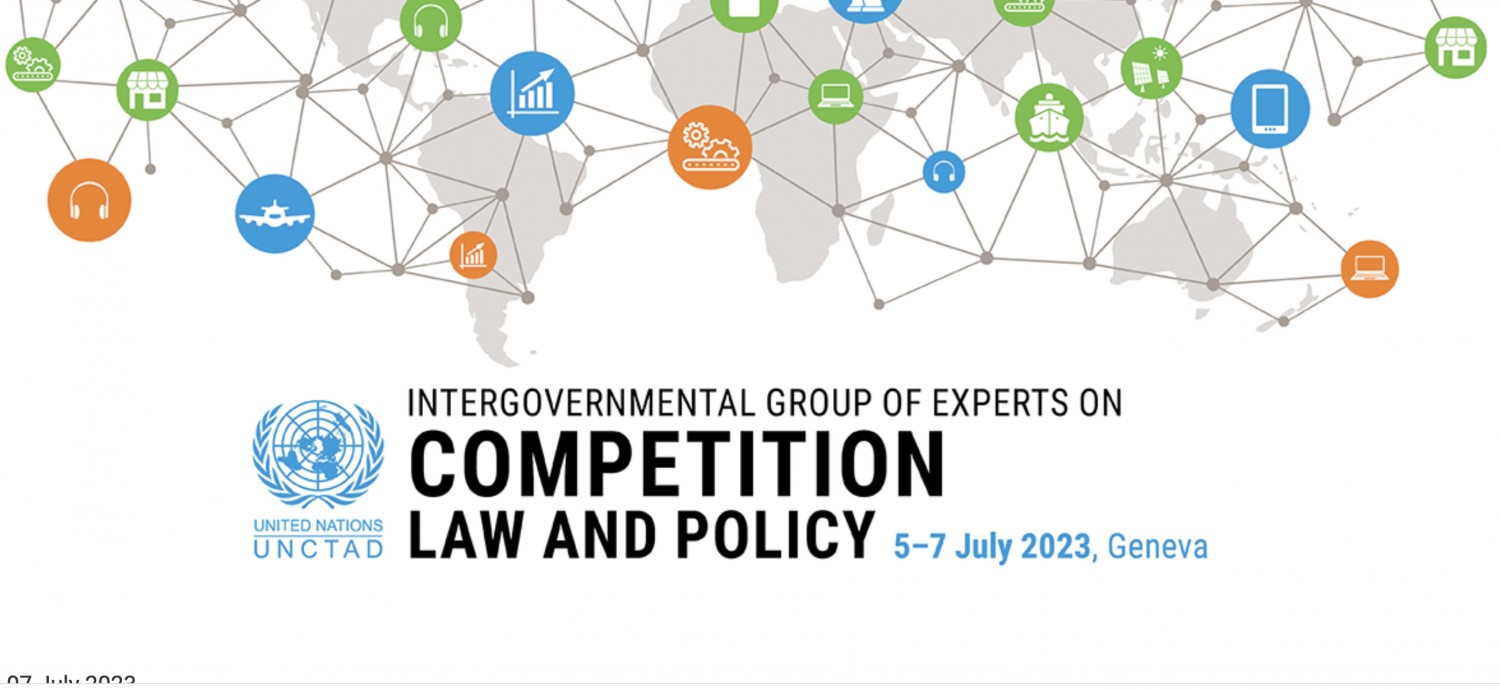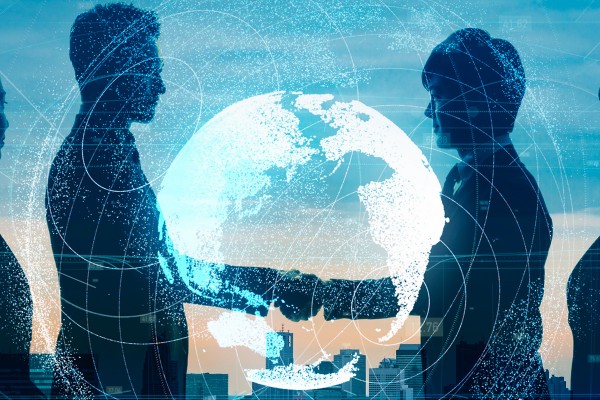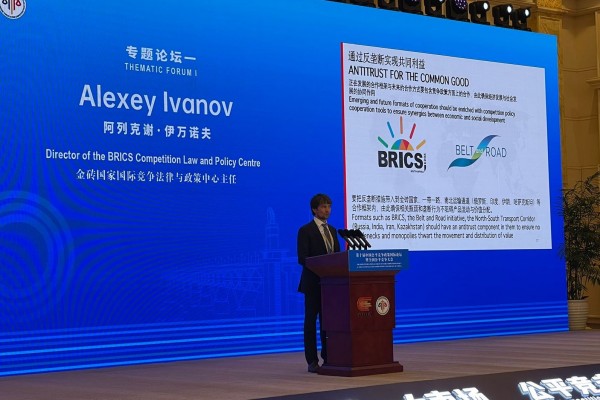On July 7, Alexey Ivanov, Director of the International BRICS Competition Law and Policy Centre, participated in the XXI session of the Intergovernmental Group of Experts (IGE) on Competition Law and Policy of UNCTAD held in Geneva.
The session, in which Alexey Ivanov spoke, was entitled "Competition Law and Policy and Sustainability". Competition law has long had a beneficial effect on global supply chains and economic development. Today, it also contributes to sustainable development goals. Members of the IGE discussed the efforts of competition authorities in different countries to promote sustainable development and the challenges and successes related to this.
Alexey Ivanov drew attention to the fact that sustainable development implies not only the environmental but also the social aspect. The concept of sustainable development emerged in the 1970s and was based on the idea of the world as a complex adaptive system, he reminded. This system requires an understanding of the weak and strong links operating within it, as well as a variety of risks, including climatic and socio-economic ones.
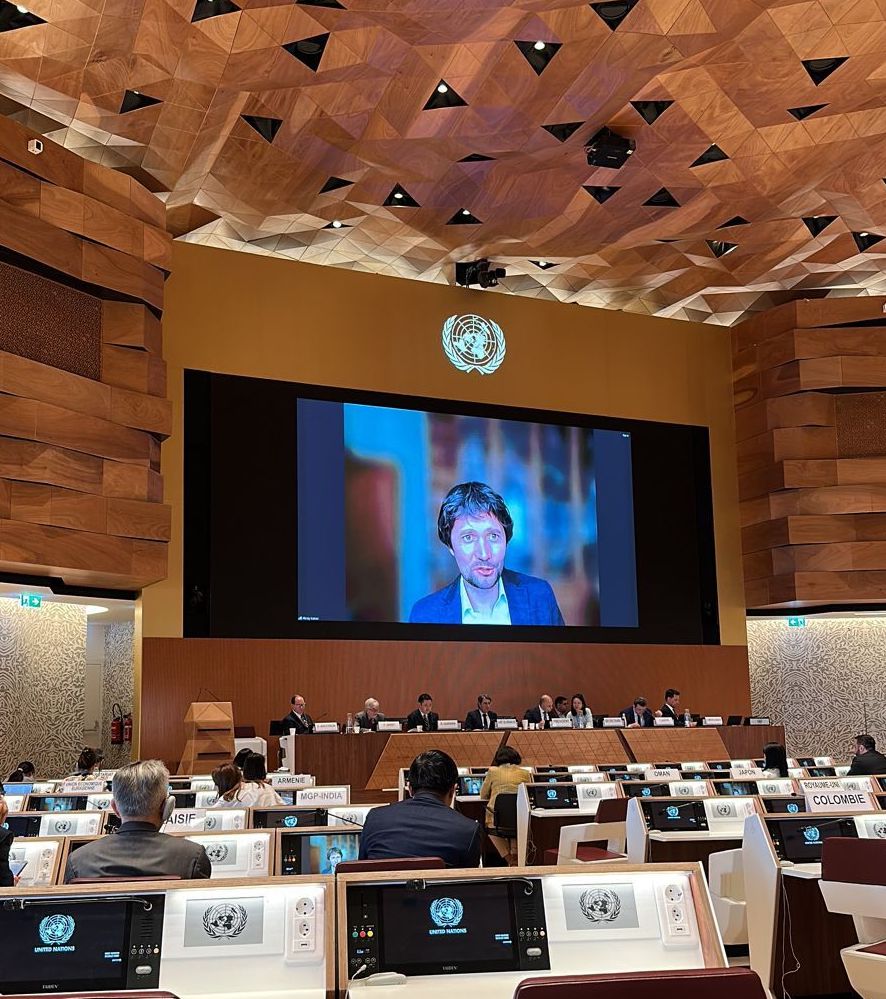
In 2015, UN Member States adopted the Sustainable Development Goals (SDGs) to "end poverty, protect the planet, and ensure that all people enjoy peace and prosperity by 2030.” Competition agencies, considering the SDG agenda, should draw on both the methodological approach in the field of ecology and insights in the study of complex adaptive systems. This knowledge will help deal with major systemic problems and act more effectively in the face of a global crisis.
"It's not only about the environment in the context of sustainable development. It's extremely important to include in this discussion developing countries which do suffer from inequality, exclusion and fragmentation of the global economy. Reducing inequality, fighting poverty, and establishing peace in international politics are the most important issues of sustainable development today."
Ivanov noted.
Mr. Osamu Igarashi, Deputy Director, Coordination Division, Japan Fair Trade Commission, noted that the agency issued The Green Guidelines in March 2023 that summarise the concept of companies acting to spur growth without significantly impacting the environment. He also talked about the Japanese regulator's approach to evaluating companies' joint activities on the green agenda and reducing GHG emissions.
“Japanese competition law has a requirement of “substantial restraint of competition” in a relevant market for cartel conducts. For non-hardcore cartels, we can implement a rule of reason test with taking into account reduction of GHG emission as a pro-competitive effect. In order to encourage the activities of enterprises toward the realization of a green society, the JFTC will actively respond to their request for consultation in light of the Guidelines.”
Competition law enforcement should be integrated into the social and political context, stressed Dr. Frederic Jenny, Chairman, OECD Competition Committee.
"Developing countries are on the receiving end of the effects of climate change, such as hunger and the spread of diseases. To develop, they need to increase production and have access to new technologies that help ensure greater sustainability,"
stressed Dr. Jenny. He also noted that the challenges to sustainability come from both sides: consumers are often not willing to spend on more expensive cleaner products and services, while producers may engage in greenwashing through green PR. In addition, there may be a first-mover disadvantage — high costs and commercial risk associated with the production of more sustainable products, making it unprofitable for a firm to embark on such production alone. Regulators should therefore be more active in explaining to companies what options they have to cooperate without infringing competition law.
Mr. David Anderson, Office Managing Partner, Bryan Cave Leighton Paisner, presented a map of the world antitrust agencies. According to him, they can be divided into three groups, depending on the regulatory initiatives and the vision of the role of competition law in achieving the SDGs:
- Reformers: the Netherlands, Greece, Austria, etc. (developing new rules and guidelines; expanding the concept of "consumer welfare" to the entire society, not just buyers of specific marketplaces; considering competition law one of the most important drivers of the "sustainable" agenda).
- Retainers: Germany, Italy, Belgium, etc. (promote sustainability with already existing tools and concepts).
- Reflecters: most regulators who have not yet decided on a tactic.
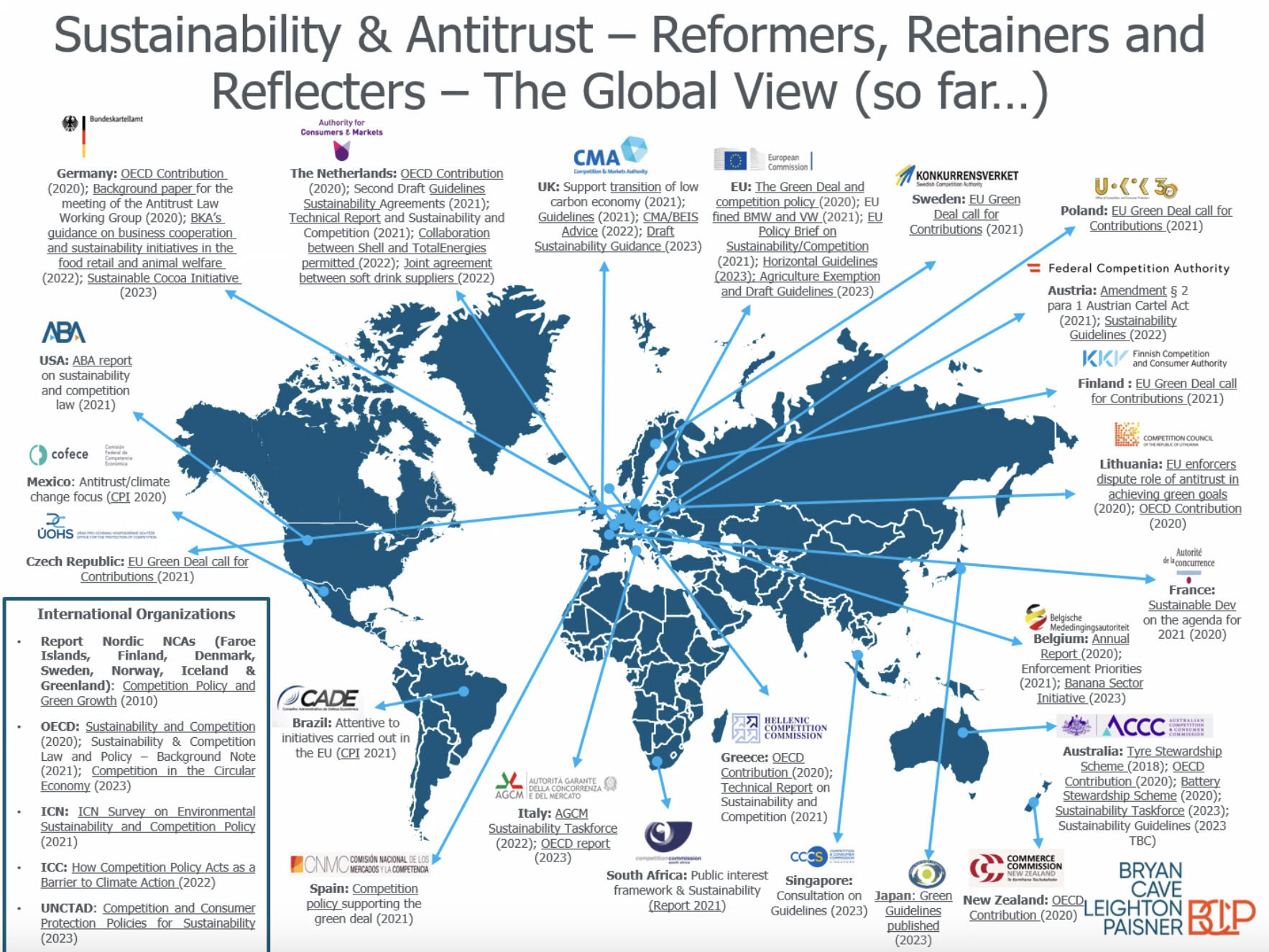
Mr. Ioannis Lianos, President, Hellenic Competition Commission, noted that his agency is actively engaged in the global debate on the interplay between competition law and sustainability. He stressed that the consumer welfare paradigm, brought to antitrust in the 1980s by the Chicago School of Sociology, is now in conflict with the goals of sustainable development and clearly needs to be modified.
"The consumer welfare paradigm considers only current consumers in one geographic product market and does not take into account the interests of future generations. In addition, consumers' actions can be contradictory: as consumers, they may choose more affordable "dirty" goods, but at the same time vote for "green" initiatives.”
In addition to protecting the environment, it is also important to strive for sustainability in the social sphere. This is particularly relevant for developing countries, pointed out Hardin Ratshisusu, Deputy Commissioner of the Competition Commission of South Africa. Most developing countries, including South Africa, have enacted broader competition laws to achieve goals beyond the narrow concept of consumer welfare, he stressed.
"While climate change is the most immediate and urgent global concern, sustainability considerations in competition regulation, based on our experience and that of other developing countries, should go beyond climate change concerns.”
The UNCTAD's 2022 report on “Competition and Consumer Protection Policies for Sustainability”, which explored the interplay between competition law and sustainability and illustrated initiatives undertaken by competition authorities.
The Intergovernmental Group of Experts on Competition Law and Policy is a global discussion platform established in accordance with the United Nations Guidelines on Protection of Competition under the auspices of UNCTAD to monitor the application and implementation of competition policy worldwide.
